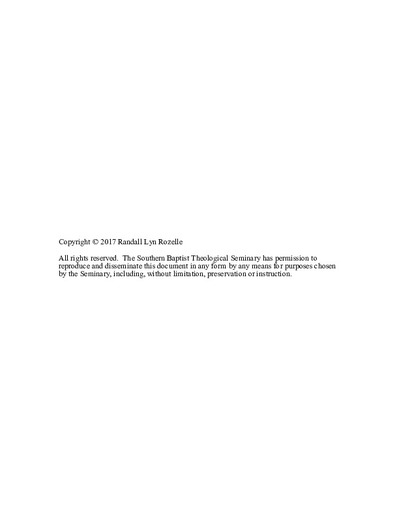Expository Preaching at the Dawn of the Reformation: An Evaluation of Martin Luther as Preacher in Light of Modern Expository Theory
Abstract
ABSTRACT
EXPOSITORY PREACHING AT THE DAWN OF THE
REFORMATION: AN EVALUATION OF MARTIN
LUTHER AS PREACHER IN LIGHT OF
MODERN EXPOSITORY THEORY
Randall Lyn Rozelle, D.Min.
The Southern Baptist Theological Seminary, 2017
Faculty Supervisor: Dr. T. J. Betts
This thesis examines Martin Luther as an expository preacher. Contemporary authors such as Ewald Plass, Peter Brooks, Fred Meuser, Sydney Greidanus, James MacKinnon, John MacArthur, and Hughes Oliphant Old describe Luther as an expository preacher, yet none of them clarifies how or in what way they reach that conclusion. To that end, chapter 1 introduces Luther as a preacher and the need for this study.
Chapter 2 defines modern expository theory and presents a four-fold method for creating faithful, expository sermons.
Chapter 3 tracks Luther’s change in hermeneutic from a medieval, allegorical approach to a Christ-centered, historical-grammatical method. Luther’s postils (sermons on lectionary readings) are used to demonstrate his hermeneutical shift.
Chapter 4 samples Luther’s catechetical preaching, lectionary preaching, and verse-by-verse exposition of the Fourth Gospel to reveal in what ways he can be deemed an expository preacher and a forerunner of modern expository theory.
Chapter 5 draws implications from Luther’s expository methods that can benefit the church today, as well as expressing the need for additional research.

